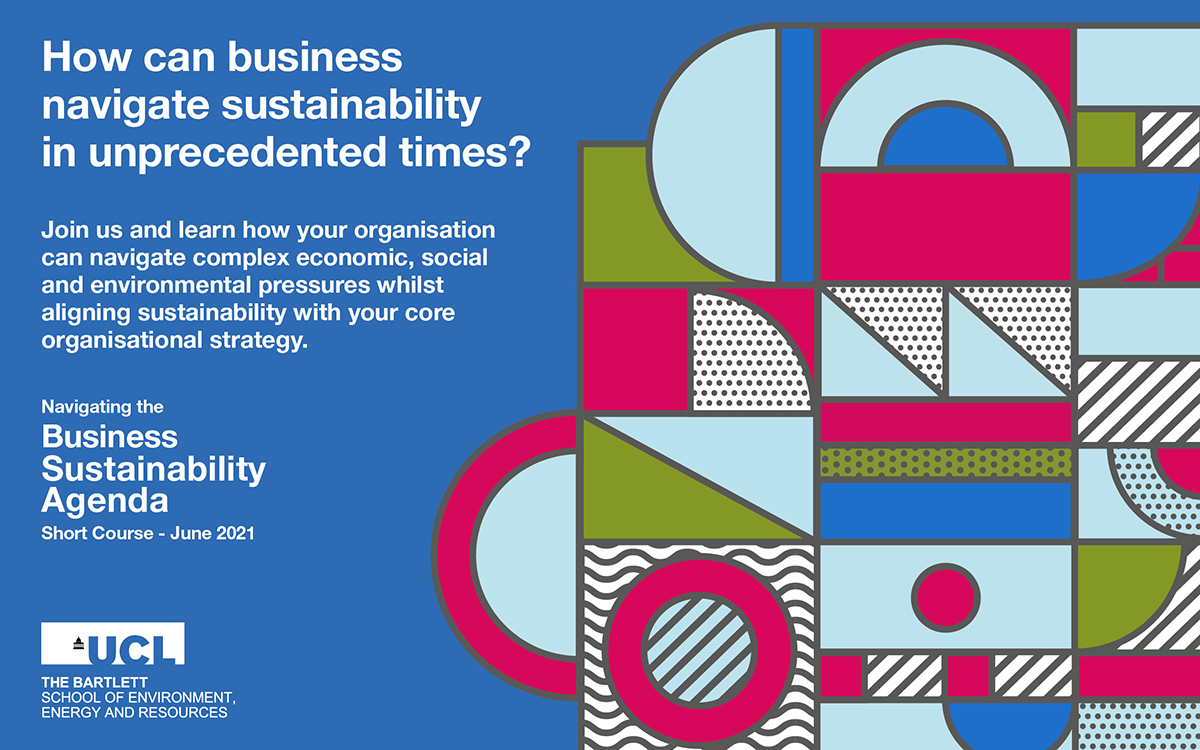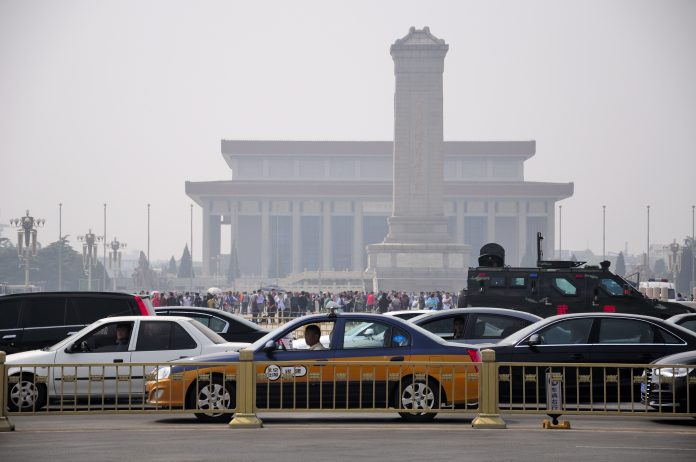Raimund Bleischwitz from University College London, Bartlett School of Environment, Energy and Resources (UCL BSEER), discusses systems thinking for net zero carbon and a circular economy
He also touches on the role of universities in innovation alliances, such as UCL’s new short course on business and sustainability being launched soon.
The next UN climate change conference, dubbed as COP26 and hosted in November 2021 by the UK in Glasgow, Scotland, has all the ingredients for a vaccine boost against inaction. With regained efforts in the USA under the Biden/Harris administration, the pledge for net zero by Chinese President Xi Jinping and success in the ‘race to net zero’ campaign, it is now a window of opportunity to refresh ambitions and deliver. The UK Prime Minister Boris Johnson calls for a ‘whole systems approach’ to decarbonisation efforts.
The energy transition is a starting point for further ambitions. A circular economy is a wider mission designing out all waste and emissions by maximising utility over time and maintaining values. It is a positive vision with pledges from various companies, including BlackRock, Google, Unilever, and from governments worldwide. UNEP’s GEO for Business programme is producing six Briefs covering various aspects of the sustainability transition. Climate action goes hand in hand with efforts towards resource efficiency and sustainability transformations.
Looking at our homes for instance, UNEP’s International Resource Panel estimates GHG emission reductions from the material cycle of residential buildings in the G7 and China by at least 80% in 2050 through design with less and better materials, re-use of construction materials, and other strategies. In times of a recurrent pandemic, a transformation of office space and inner-city areas towards liveable communities does offer opportunities to build back better.
Sunday’s pledges are good – but what happens when Monday comes
The big question is how those pledges are turned into action on the ground, into transitions of organisations and new pathways. Despite a sense of urgency, there is a massive skill gap in business and administrations and a need to do training at unprecedented scales. Many business leaders have good intentions but lack the strategy knowledge to navigate their organisations through the unknowns of the years ahead while grappling with balance sheet requirements and diverging demands from shareholders and stakeholders.
In an age of unprecedented change and disruption business leaders now more than ever need a combination of wide-angle lenses to pick up the mega-trends, and focused expertise to understand how to navigate their organisations through the turbulent times these trends will generate. Based on a range of interviews, consultancy Korn Ferry foresees a move of sustainability leaders increasingly operating at C-suite levels. Future sustainability leaders act as spiders in the web of constraints knowing how to get traction and shaping the course of events in their network. They explore possibilities in collaboration with others, have a tolerance for ambiguity and balance resilience with orientation and dedication.
The role of universities
Where would the sustainability leaders of tomorrow come from? Universities are well positioned to play a role in the triangle of knowledge, education and innovation: Covid-19 has helped to reposition universities as trustworthy providers of knowledge with advanced data analytics and modelling skills, and an interdisciplinary capability of connecting the dots of evidence with narratives for change. Excellent universities such as UCL turn their new research findings into novel education programmes to train leaders of tomorrow.
UCL’s short courses on business and sustainability
London’s Global University, University College London (UCL), is now launching a series of short courses that are intended to act as a compass for the future. The first, ‘Navigating the Business Sustainability Agenda’ will provide an overview of business and sustainability issues. Later courses will focus on sustainable finance, smart mobility, the circular economy, net zero, and other issues. The courses will equip middle and senior managers with the knowledge and leadership skills they will need to thrive as the business environment transforms around them. They bring together the world-class academic expertise of UCL BSEER with the insights and experience of two leading consultancies in business sustainability and transformation, Anthesis and Volans.

The course will run over three days on 7, 8 and 25 June. Two weeks between Days 2 and 3 will allow participants to share evidence about urgency and apply their learning to their own organisation. Day 3 will share the resulting insights and experiences and take participants out of their comfort zone to work through the business transformations that will be required if current sustainability challenges are to be effectively addressed. Back in their organisations, participants will then construct their own strategy and action plan for their organisation to thrive amid the turbulence and disruptions of the sustainability transition. The strategy and action plan will be assessed, and confidential feedback will be given by the faculty.
The programme will enable participants to:
- Evaluate the impact of current global, economic, social and environmental pressures on their organisations.
- Understand the importance of navigating complexity through system-thinking.
- Recommend how to align sustainability with the core organisational strategy.
- Assess the opportunities for innovation and collaboration with key stakeholders.
- Reflect on the values, thinking and practices that need to be developed to be an effective change agent.
- Construct a practical action plan within their sphere of influence to drive internal change.
‘Great to see UCL ramping up business education on sustainability – rapidly becoming a core competency requirement for all senior positions’ – Nigel Topping, UK High Level Climate Action Champion, COP26
‘Skills shortage is a significant barrier to the implementation of the energy transition and removing climate risk’ – Michelle T Davies, Partner and International Head of Clean Energy and Sustainability, Eversheds Sutherland
‘UCL has so much to offer in this important space’ – Nigel Jollands, Associate Director, European Bank for Reconstruction and Development (EBRD)
*Please note: This is a commercial profile











